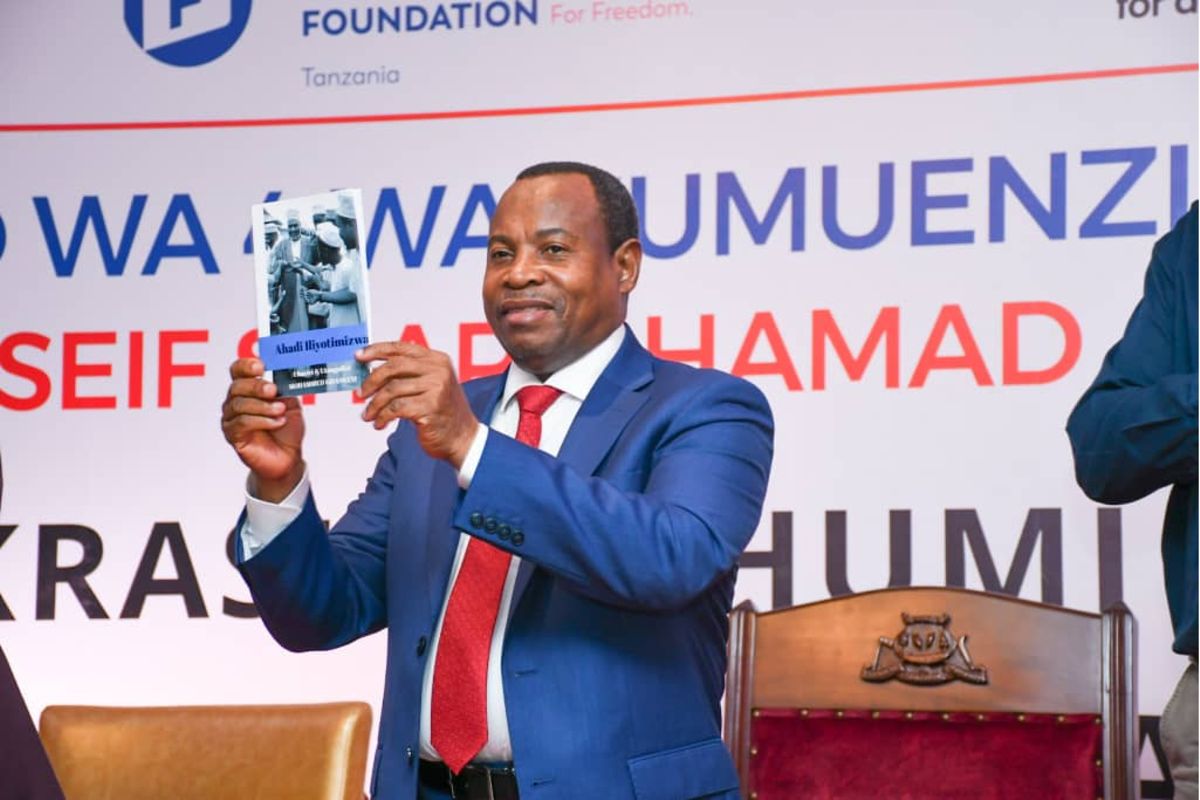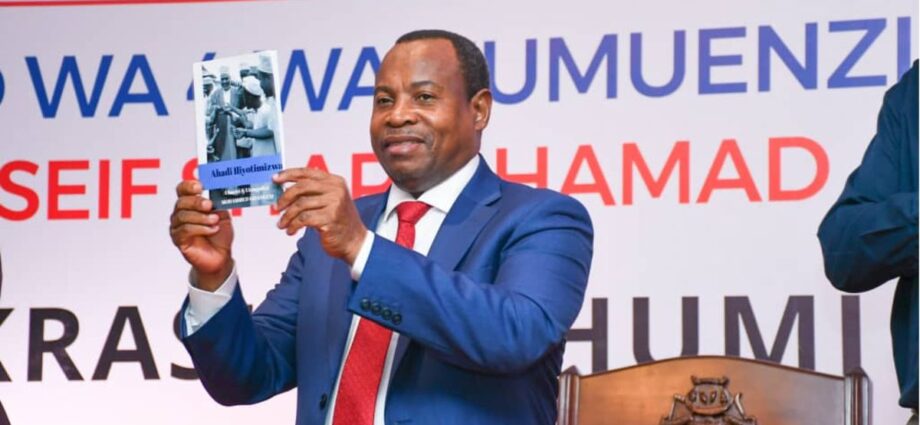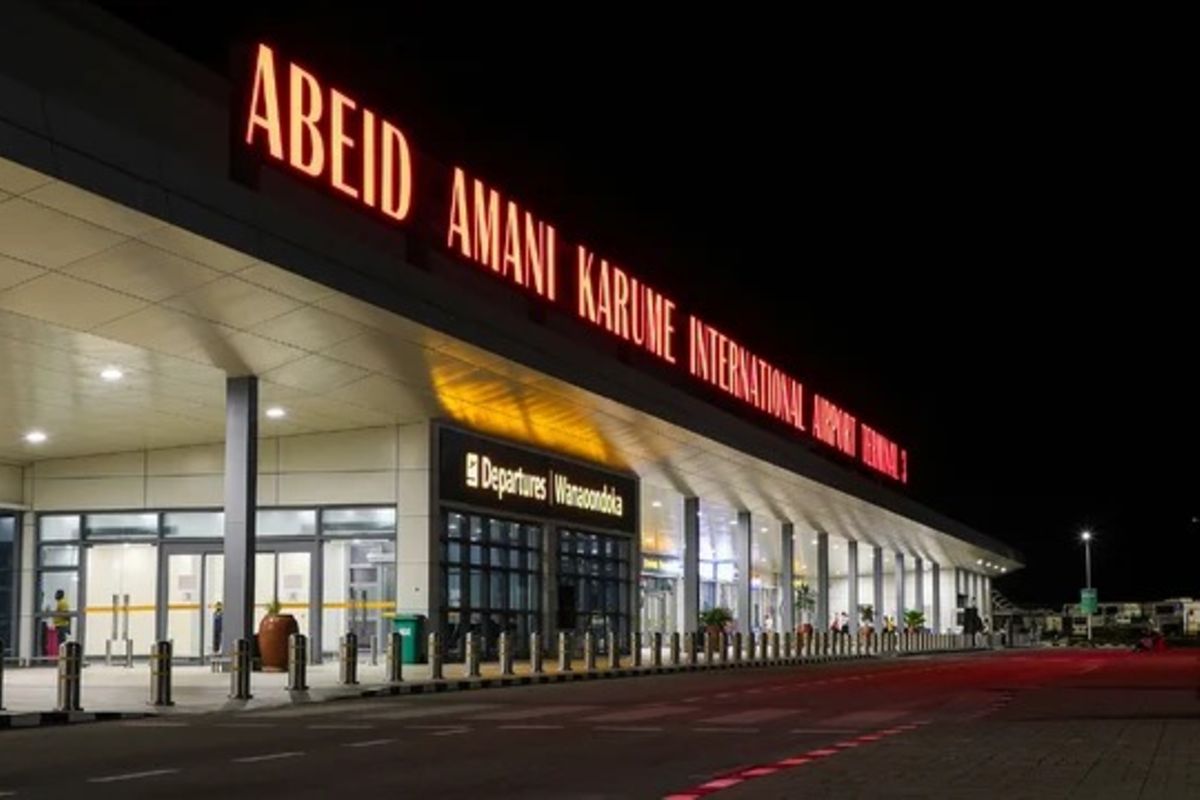
Unguja. Zanzibar’s First Vice President, Othman Masoud Othman, has outlined five essential strategies for advancing the nation’s free market economy, emphasising that these measures are critical for creating sustainable jobs for Tanzanians.
Speaking during the opening of the fourth annual Maalim Seif Sharif Hamad Commemoration Conference on Sunday, December 15, Othman said the five key areas for a thriving economy are: sound policies and laws, visionary leadership, effective performance, the adoption of appropriate production technologies, and a robust tax system.
He stressed that if these areas are effectively addressed, Zanzibar will be well-positioned to boost employment and economic growth.
This year’s conference, held in honour of the late Maalim Seif, whose leadership legacy continues to inspire, focused on the theme: “Democracy, Free Market Economy, Employment, Challenges, and Opportunities.”
The Maalim Seif Foundation, in collaboration with the Friedrich Naumann Foundation, has been organizing these commemorations since his passing in February 2021.
“We must create policies that attract both local and foreign investors, stimulate production, and develop a market that can meet the needs of our people,” Othman, also the chairman of ACT-Wazalendo, emphasized.
He pointed out that a stable and visionary leadership is crucial for the formulation and implementation of policies that foster economic growth. He also called for a concerted effort to establish infrastructure that supports these policies.
When discussing the need for effective performance, Othman highlighted that simply having resources is not enough.
“Many countries are rich in land and natural resources, but the real question is: How do we use modern technology to turn those resources into valuable products?” he asked.
He further noted that to succeed in the global market, the country must focus on quality production and the integration of technology into its manufacturing processes.
In addition, Othman underscored the importance of a stable tax system that assures investors their investments will be protected.
“Tax stability is a key factor in attracting investment. If the tax rate keeps changing—from 5 percent today to 20 percent tomorrow—it will drive away potential investors,” he said.
Othman also stressed that a thriving free market economy requires strong democratic institutions that uphold the rule of law, ensure transparency, and encourage accountability.
Mohamed Aboud, a member of the Central Committee of the ruling Chama Cha Mapinduzi (CCM), reflected on the importance of unity in achieving democratic and economic goals.
He praised Maalim Seif for his commitment to justice, equality, and the development of the nation.
“We can only achieve success by strengthening our unity. The foundation of our democracy and economy lies in our ability to come together as one,” Aboud said.
He noted that Zanzibar’s unity has often been tested during election periods, with divisions arising when peace is most needed. As the country prepares for the 2025 general elections, Aboud called for renewed efforts to ensure peace and stability.
“Nothing can be achieved without peace. As we discuss these important issues, we must focus on deepening our unity so that it remains strong, especially during elections,” he said.
Aboud urged political parties to set aside differences and engage in dialogue for the greater good of the nation.
“Politics should not be about conflict. It should be about meeting the needs of the people. If any political action is not for the benefit of the people, it cannot be considered true politics,” he added.
Nassor Ahmed Mazrui, a board member of the Maalim Seif Foundation, echoed the importance of democracy in fostering economic growth and job creation.
“For democracy to be meaningful, it must lead to tangible improvements in the economy. Maalim Seif was a firm believer in democracy as a tool for economic progress. He left us with a valuable legacy that we must continue to honor,” Mazrui stated.
Sandy Quimbaya, the Resident Director of the National Democratic Institute (NDI), also highlighted the importance of collaboration in advancing democracy and tackling the challenges that hinder progress.
Stefan Schott, the head of the Friedrich Naumann Foundation for Freedom, acknowledged that democracy is not always easy to achieve, but emphasized that the rule of law must always be prioritized.
He also pointed out that many African countries, including Tanzania, continue to face democratic challenges that require collective action.














